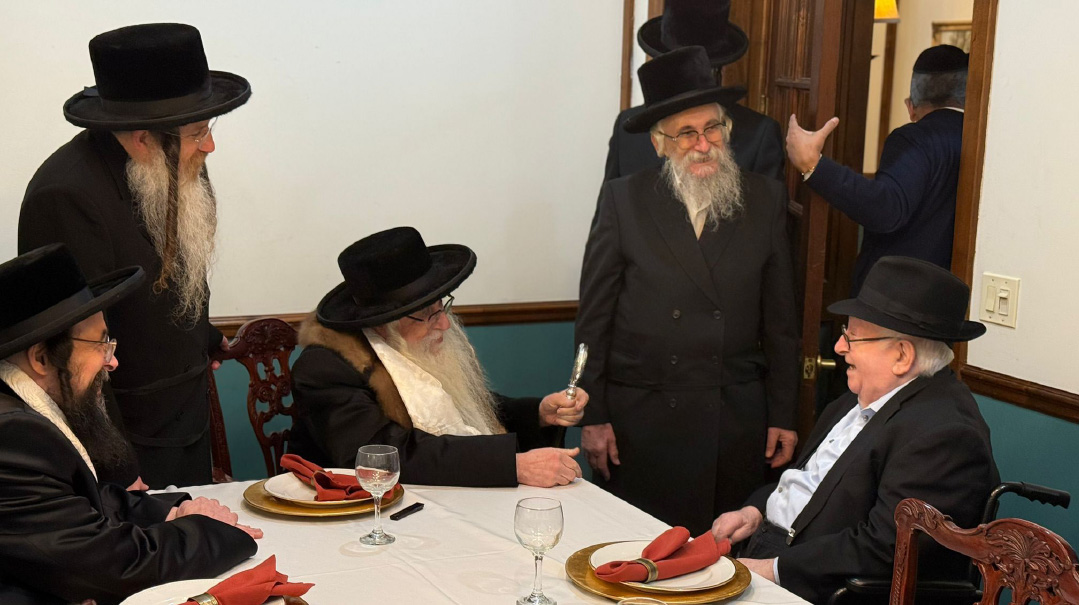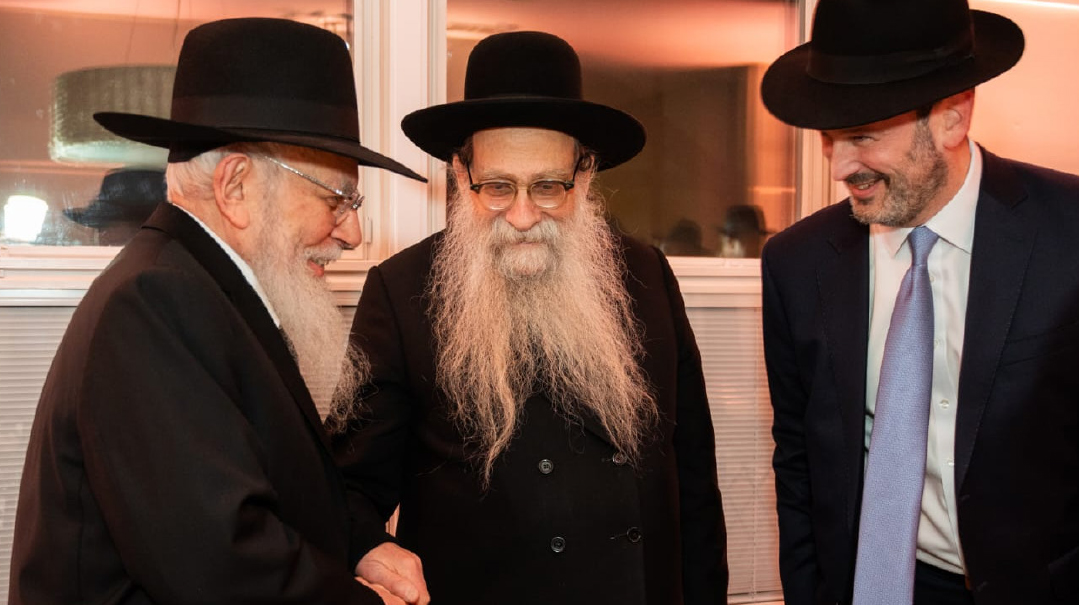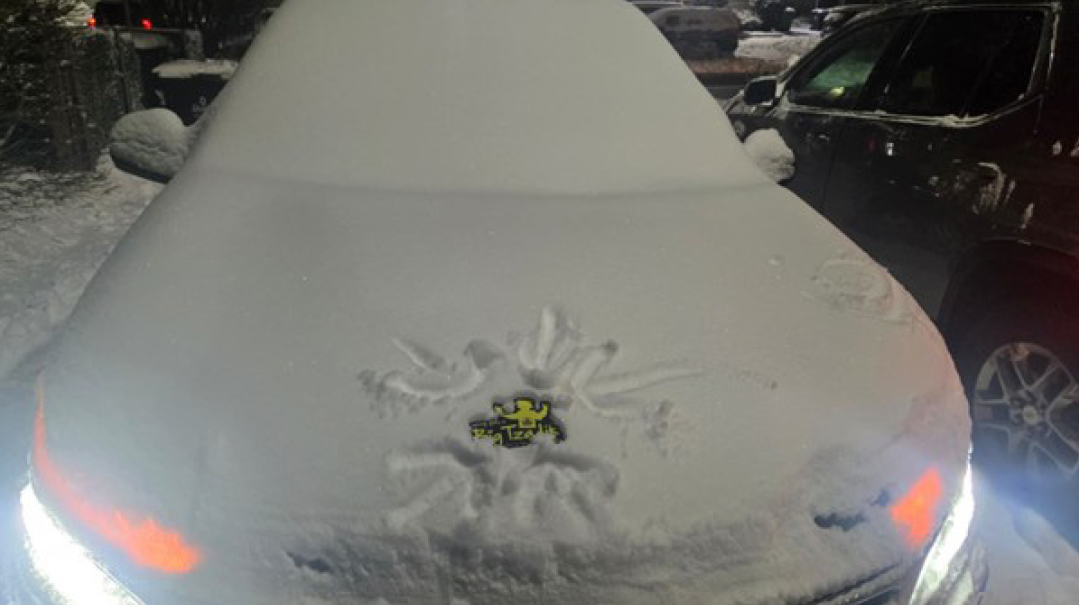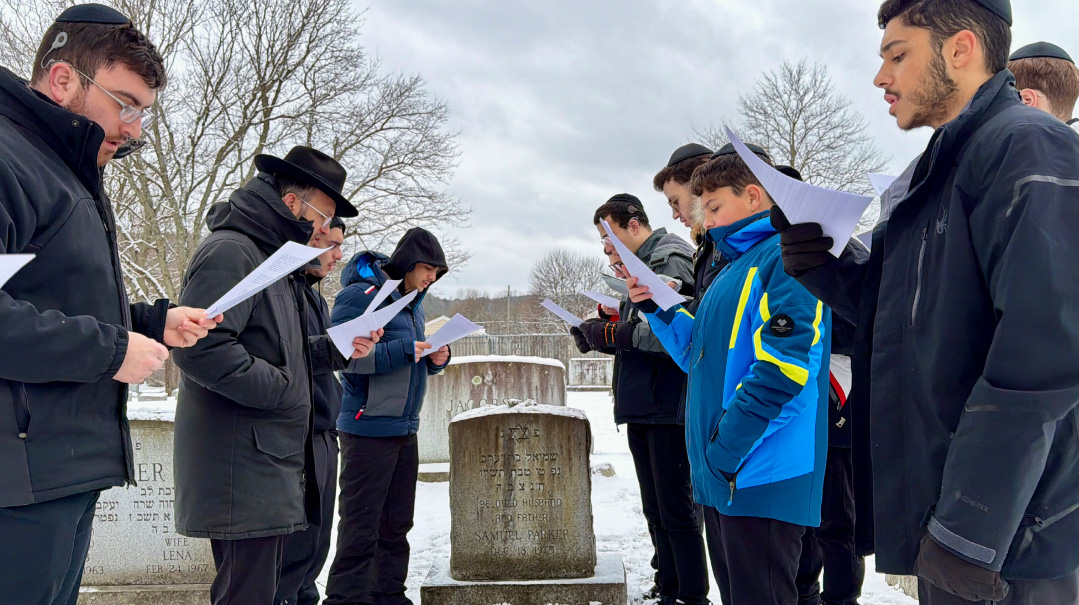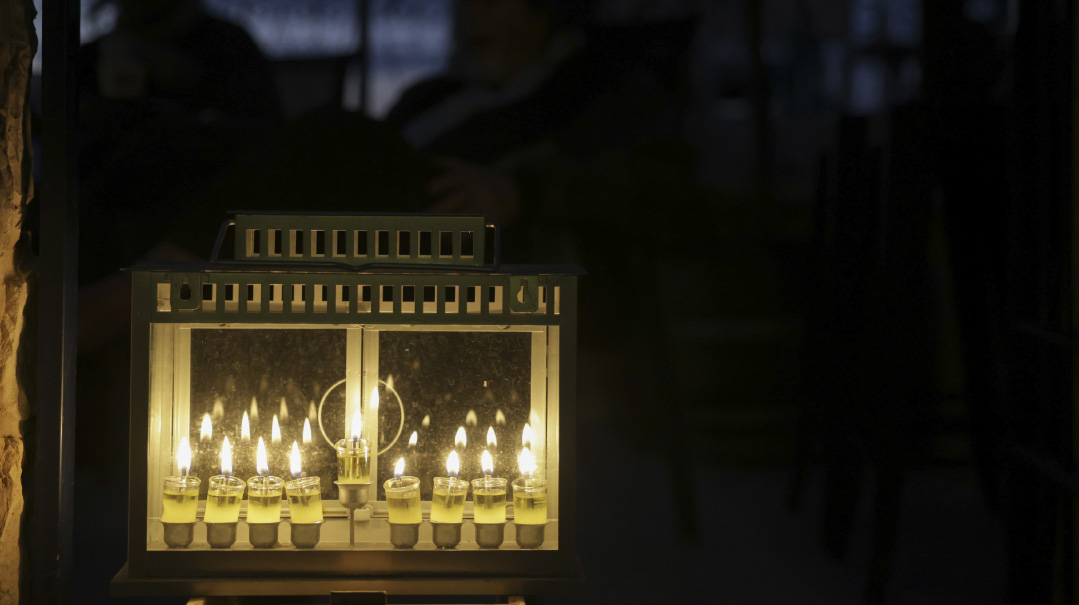Five Lost in Morocco

The members of the kehillah in Tzfas are struggling to digest the loss
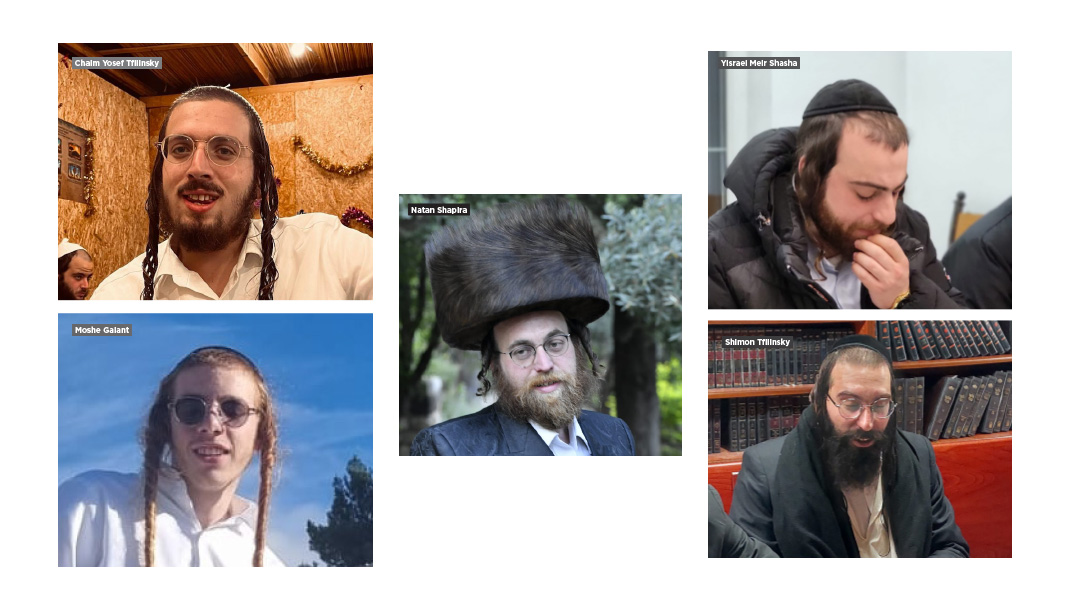
“HaKadosh Baruch Hu picked them out one by one, you can see it clearly,” a relative says of the five victims of the car crash in Morocco last Friday. “He picked out who wouldn’t be in that car, too.”
The five Tzfas residents killed in the crash, four of whom were related, were part of a larger group that had rented several cars on a tour of kivrei tzaddikim in Morocco. Some had arrived straight from Uman, which they visited every Erev Rosh Chodesh. Last Thursday, they visited the kever of Rabbi Masud Abuchatzeira, the Baba Sali’s father. After that, they continued on their way, stopping at a gas station to get some sleep.
For most of the trip, there were only three to four people per vehicle. Then at some point, one person suggested a visit to another tzaddik’s kever. Brothers Shimon (33) and Chaim Yosef (20) Tfilinsky, and their cousins Moshe Galant (18) and Natan Shapira (37), had already decided to head out in one car, when Yisrael Meir Shasha (25) asked to join at the last moment. Another person who wanted to join was unable to. Shapira, a family member says, had initially said that he was tired, but decided to come at the urging of his cousins.
What happened next is not entirely clear. In the morning, the rest of the group were notified by the car rental company that the vehicle had been involved in an accident with five fatalities. It emerged that a driver behind them had seen the car swerve off the road. He did a U-turn at the very next junction, and called the police when he discovered the scene of the crash. The rest of the group rushed to the scene to gather the victims’ belongings.
The members of the kehillah in Tzfas, many of whom davened at the shul run by Nachman Galant, Moshe’s father, and many of whom learned at the Kollel Chatzos started at the urging of Shimon Tfilinsky, are struggling to digest the loss.
“If Natan Shapira were with us now, he’d be the first to start a fund to help the families,” someone says.
“If Yisrael Meir Shasha were here, he’d be the one organizing the funerals,” says someone else.
Natan Shapira, a father of eight (aged 15 to a month and a half), is described as a man of good middos and pleasant disposition, humble and quiet. But in his own unassuming way, he was full of Torah and chesed. He worked as a mashgiach kashrus at a slaughterhouse in Tzfas for a decade, until it was closed. A few years ago, he started to learn at the Kollel Chatzos. He would rise for hisbodedus, continue on to the Kollel, and finish his learning in the afternoon. He quietly labored over his learning, meriting to complete Shas as part of the Daf Yomi program just a few months ago. He had started the cycle with Maseches Bava Basra, and when he finished Bava Metzia earlier this year, he quietly noted that for him, this was a siyum haShas.
“He was so unpretentious that he didn’t even tell his own family, and didn’t make a big deal of it as others do,” his brother-in-law says.
Shapira was noted for his honesty in everything he did. He gave tzedakah in secret, and was very careful in matters of bein adam l’chaveiro, so as not to hurt anyone’s feelings. If he suspected that he’d hurt someone, he would take extreme measures to placate them.
“He once donated a new bathroom to the shul at a cost of NIS 20,000 and warned the gabbai not to tell anyone,” his family recounts. “He used to help people in secret when they needed it. There are good deeds of his that we’ll never know about.”
Shimon Tfilinsky, a father of nine, the youngest of whom had his bris in Uman last year, is one of those of whom it’s said, “It isn’t simple to be a simple Jew.” His friends describe someone who lived a very simple life, but one full of Torah, tzedakah, and simchah, as well as concern for and devotion to his family and community. With his charismatic personality, he became a magnet for youths in the kehillah who were struggling spiritually, serving as a source of chizuk. Always the life of the Kollel Chatzos to the avreichim around him, he was constantly traveling to kivrei tzaddikim, making annual pilgrimages similar to his last . Every day, he davened k’vasikin after learning.
“He utilized his time very carefully,” his chavrusa recounts. “He was a talented sofer stam by trade, with a beautiful hand, and he utilized every moment for learning and writing.”
In kollel, his chavrusa recounts, Tfilinsky covered the entire Torah, performing a big siyum every two years. “He finished the Shas, Zohar, Rambam, Tur, Shulchan Aruch, Mishnah Berurah, all the writings of Rebbe Nachman. He was very careful of his time, to make sure he could finish his daily learning and writing. But he didn’t hold himself above others, he was a very simple person. He greeted others with a smile, didn’t believe himself a tzaddik, and gave abundant tzedakah.”
His brother, Chaim Yosef Tfilinsky, also learned at the Kollel Chatzos. Along with his cousin Moshe Galant, who lost his mother just three months ago, and their friend Yisrael Meir Shasha, they were dynamic bochurim deeply involved in the community, learning at the kollel.
“Look after Moishy,” Galant’s mother urged her sons about their brother, one of her youngest.
“Now she’s taken him to look after him herself,” family members observe sadly.
Yisrael Meir Shasha’s entire life revolved around chesed and concern for the community. Whenever a fundraiser was held for the kollel or shul, he was the one who met the highest goals. He often held fundraisers himself for needy families.
“A month ago, he called me,” his friend recounts. “He told me there was a rich man who wanted to donate food for Shabbos to the needy. So he went out and did grocery shopping for 20 families, to the tune of 2,000 shekels each, and left the groceries outside their doors, without them even knowing who had done it for them.”
Shasha, the oldest in a family of seven, was a rock for his family, taking care of his parents and siblings. His passing will be deeply felt. He was the first to be buried on Monday morning, with his funeral going out to Meron, where he was buried, near Kever Rashbi. The other victims were laid to rest in Tzfas, where Moshe Galant was buried near the fresh grave of his mother.
(Originally featured in Mishpacha, Issue 1040)
Oops! We could not locate your form.

